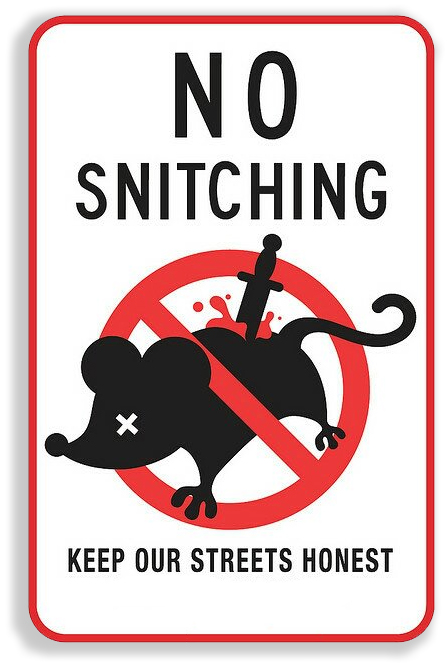We post news and comment on federal criminal justice issues, focused primarily on trial and post-conviction matters, legislative initiatives, and sentencing issues.

THANKS FOR NOTHING, YOUR HONOR
In my weekly newsletter for federal inmates, I employ use pseudonyms – such as “John Doe” where the guy’s real name is Styrene Lewd – for defendants in cases I report. I do it for all inmates, whether they’re convicted of beating a platoon of SEALs to within an inch of their lives in a bar fight or instead found guilty of some unspeakable child sex crime. I do this in order to avoid any problems for the inmate if he has chosen not to reveal his offense to others in the cellblock.
 Nothing can ruin a carefully curated cover story like an email newsletter blasting your name and actual offense to over 7,000 inmates on a Sunday night.
Nothing can ruin a carefully curated cover story like an email newsletter blasting your name and actual offense to over 7,000 inmates on a Sunday night.
I change the names back to reality in the these blogs, however, because accuracy demands it. So if you read about Styrene Lewd, you can be confident that Styrene Lewd is the real deal. After all, what are you going to do about it? Park outside the prison with a soundtruck?
I used today’s defendant’s actual name in the newsletter, however, because that is undoubtedly what he wants. His name is Mike Bacon, and he is no snitch. But when he pled guilty to bank robbery, however, and signed his plea agreement, the district court told him that he also had to sign a plea agreement supplement that described the robbery offense and contained other details, including the fact that he had refused to cooperate with the government.
 Mike objected. This trip to the big house was not Mike’s first rodeo, and he knew that when an inmate hit the yard, others imprisoned there would find a way to access his court files. Seeing a notation that a document – especially a supplement to the plea agreement – was filed under seal, anyone reading the file would conclude that Mike had cooperated with the government. That is, that he was a rat.
Mike objected. This trip to the big house was not Mike’s first rodeo, and he knew that when an inmate hit the yard, others imprisoned there would find a way to access his court files. Seeing a notation that a document – especially a supplement to the plea agreement – was filed under seal, anyone reading the file would conclude that Mike had cooperated with the government. That is, that he was a rat.
For the uninitiated, being known in the joint as a “rat” or a “snitch” or even perhaps, to use the gentle British phrase, “helping the police with their inquiries,” is not a good thing.
The district court, however, helpfully explained to Mike, “We… file the supplement under seal in every case… to protect the rare person who does cooperate.” The thinking goes that if everyone had a sealed supplement, then no one could identify the “rare” person (in the court’s words, “rare” here meaning about 60% of all drug defendants, for example) who signs a cooperation agreement.
Mike’s lawyer told the district judge that “when you have a sealed pleading in your record, that becomes known to the people in the prison, and it causes him a security problem… I’m not sure all the inmates in the prison know that a sealed pleading is filed in every case, and… .it doesn’t mean he’s cooperating. That’s why he doesn’t want that sealed pleading in this case, and he would like to have that withdrawn because it’s put him in danger.”
The court sealed it anyway, and Mike appealed. Last week, the 10th Circuit agreed with Mike.
There is a strong presumption judicial in favor of public access to court records, the Circuit held, and that presumption cannot be overcome except “where countervailing interests heavily outweigh the public interests.” The party seeking to keep records sealed bears the burden of justifying the secrecy.
 In Mike’s case, instead of requiring the government to advance a significant government interest to justify keeping the plea supplement sealed, the district court simply relied on a local rule mandating sealed supplements in every case. “This ruling does not satisfy the common law standard,” the 10th said. A sealing decision must be supported with findings based on “the relevant facts and circumstances of the particular case and weigh the relative interests of the parties.”
In Mike’s case, instead of requiring the government to advance a significant government interest to justify keeping the plea supplement sealed, the district court simply relied on a local rule mandating sealed supplements in every case. “This ruling does not satisfy the common law standard,” the 10th said. A sealing decision must be supported with findings based on “the relevant facts and circumstances of the particular case and weigh the relative interests of the parties.”
Local rule or not, the district court will have to find a compelling reason to seal the supplement. Because Mike is no snitch, that’s not likely to happen.
United States v. Bacon, 2020 U.S. App. LEXIS 5377 (10th Cir. Feb. 21, 2020)
– Thomas L. Root

